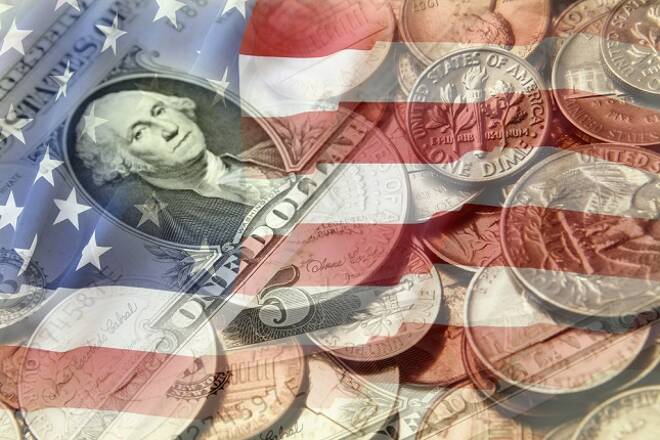Advertisement
Advertisement
U.S. Remains in Powerful Position to Dictate Outcome of Trade Disputes
By:
Last week’s U.S.-Mexico trade agreement was a positive develop. This is good for the U.S. economy, which is already functioning on all cylinders. It is likely to improve even more if Canada joins NAFTA. This upside momentum is likely to increase the pressure on the EU and China to get deals completed.
As long as the U.S. economy keep rolling, the U.S. Federal Reserve has a pretty easy job and is not likely to make any major adjustments to monetary policy unless they start to see a few cracks in the armor. When pressed to make comments about the impact of trade tariffs on the U.S. economy, the Fed is likely to also stay the course. However, as seen in the recent past, they will offer a few “generic” economic assessments of the issue.
In July, Federal Reserve Chairman Jerome said the economy is “in a good place,” but an escalation in tariffs between the United States and trading partners could affect that success.
“I think, frankly the United States economy is in a good place from a cyclical standpoint close to our maximum employment and stable prices target,” Powell said.
“The administration says that what it’s trying to achieve is lower tariffs. So if it works out that way, then that’ll be a good thing for our economy,” he added. “If it works out other ways, so that we wind up having high tariffs on a lot of products and a lot of traded goods and services, let’s say, and that they become sustained for a long period of time, then yes, that could be a negative for our economy.”
In its July meeting minutes released in August, the Fed said that it is watching the tariff impact closely, but so far has not seen an impact that would stop it from raising rates.
Clearly, tariffs aren’t a major issue with the Fed at this time, but what about the other guys? China is in trouble, the noose may be tightening on the European Union and Canada is on a short leash.
Early Monday in China, a private manufacturing survey hit a 14-month low in August as the Caixin/Markit Purchasing Manager’s Index (PMI) came in at 50.6 – the weakest since June 2017.
The report also said that overall confidence was low in August, “with a number of panelists citing concerns over the impact of the ongoing China-U.S. trade war and relatively subdued market conditions.”
CNBC said, “Even before the escalation in trade tensions with the U.S. this year, Beijing was already trying to manage a slowdown in the economy after three decades of breakneck growth.”
Furthermore, if the U.S. hits China with additional tariffs later this week then it is very likely that China’s economy will face additional downward pressure in the near future.
Given the current situation in China, it’s probably time for the European Union to sit up and take notice. Yes, we all know that Europe shuts down in August, but now it’s September so I expect to see more aggressive movement in the trade negotiations between the US and the EU.
On Friday, Trump demonstrated just how difficult conditions could get when he refused an offer from the European Union to scrap tariffs on mutual imports of vehicles, saying the proposal is a one-sided deal favoring Europe.
“It’s not good enough. Their consumer habits are to buy their cars, not to buy our cars,” Trump said in an interview with Bloomberg News.
The EU is likely headed toward the same economic fate as China if it decides to continue to retaliate against the U.S.
Canada could also be headed in the same direction, but since they proved last week that they are ready and willing to play ball than face the dire consequences of a trade war or missing out on economic opportunities, I have to conclude that a new NAFTA deal will soon be struck and both the U.S. and Canadian economies will be boosted by the news.
Last week’s U.S.-Mexico trade agreement was a positive develop. This is good for the U.S. economy, which is already functioning on all cylinders. It is likely to improve even more if Canada joins NAFTA. This upside momentum is likely to increase the pressure on the EU and China to get deals completed. The U.S. economy is strong and with new deals with Mexico and Canada, it will get even stronger and crush all the critics who said tariffs would be bad for the economy. This will not be good news for the EU or China.
About the Author
James Hyerczykauthor
James Hyerczyk is a U.S. based seasoned technical analyst and educator with over 40 years of experience in market analysis and trading, specializing in chart patterns and price movement. He is the author of two books on technical analysis and has a background in both futures and stock markets.
Advertisement
